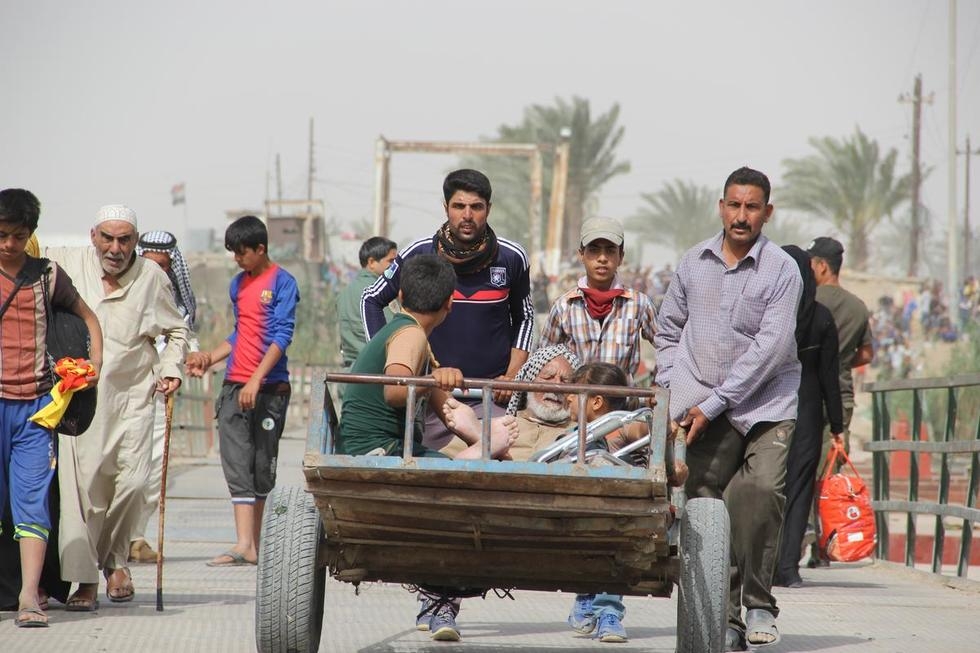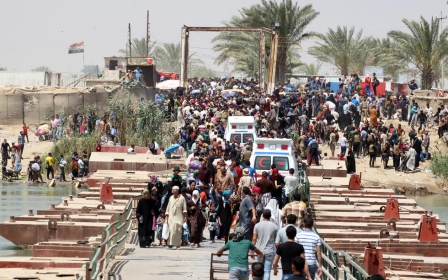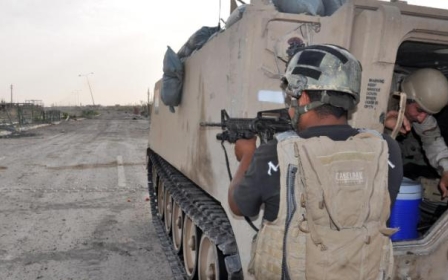Three million displaced as Iraq forces bid to retake Ramadi

The number of displaced people registered by the Iraqi Ministry of Migration and Displacement has reached three million, a government official said on Sunday.
Asghar al-Mosawi, deputy minister of the Migration and Displacement Ministry, told Anadolu Agency that the number of displaced people has increased recently due to clashes between security forces and Islamic State (IS) in the western province of Anbar.
In April, the Iraqi government registered 2.7 million displaced people in Diyala, Anbar, Saladin and Nineveh provinces.
Iraqi forces, backed by Shiite militias, launched a military operation on Tuesday against IS to retake Ramadi, the capital of Anbar province.
Iraqi army shelling leaves 19 dead in Fallujah
Meanwhile, at least 19 people were killed and 76 others were wounded as a result of shelling by Iraqi forces against IS in Fallujah in the past three days, medical officials said.
Fallujah Hospital spokesman Ahmed al-Shami told Anadolu Agency on Sunday, that in the past 72 hours, the hospital received 19 bodies and 76 injured patients, including 17 children and 15 women.
The figures do not include IS's casualties.
Fallujah Hospital officials said that since January 2014, the hospital has received 2,839 bodies, including 211 women and 360 children, as well as 4,704 wounded patients.
Continuing doubts
Some observers are doubtful about the outcome of Iraq's military operations.
"To defeat IS you must address the causes not the symptoms. But trying to address the symptoms alone, it will only cause more grievances," Sabah al-Mokhtar, an Iraqi-born observer who heads the Arab Lawyers Association in London, told MEE.
"You have people who are not IS but still do not want the government because it will bring Iranian-backed militias who will kill people, destroy their farms and properties. These people are not IS but will fight," he added.
"What Iraqi government forces and allied militias did to areas 'liberated' from is not a long-term solution."
Middle East Eye propose une couverture et une analyse indépendantes et incomparables du Moyen-Orient, de l’Afrique du Nord et d’autres régions du monde. Pour en savoir plus sur la reprise de ce contenu et les frais qui s’appliquent, veuillez remplir ce formulaire [en anglais]. Pour en savoir plus sur MEE, cliquez ici [en anglais].




